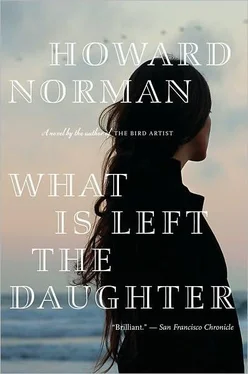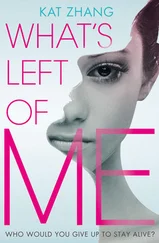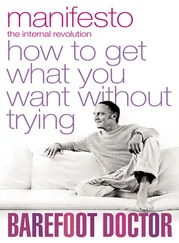"Today I lost both my wife and my daughter," my uncle said.
I had to reach across and switch on the windshield wipers.
We drove straight to the police station in Truro. There my uncle put things directly to the desk sergeant. "In all my days!" the sergeant said. "This is some novelty. Two men show up out of nowhere. Murder and accessory to murder's my educated guess. Best to leave all that up to a magistrate. Is there a vehicle?"
"My truck's right out front," my uncle said.
"Keys?"
"On the seat," my uncle said.
"I'll take you to lockup. Got anyone to telephone?"
"No, sir," I said.
So, Marlais, on October 23, 1942, a magistrate's hearing was held in the library in Middle Economy. It was an irony, locally noted, that Magistrate Dean Junkins, who'd been sent out from Halifax on October 18, was put up in the rooms above the bakery. Cornelia had tidied things up nicely. Tilda had packed up her and Hans's belongings and moved back to the house. Donald and I were delivered by an RCMP officer named Bernard Remmick by car to the library. In the newspaper it was called a paddy wagon, but it wasn't any such thing; it was an automobile like any other. The Mail also referred to the hearing as "a preliminary inquiry into the murder of the German student Hans Mohring," but as it turned out, it wasn't preliminary to anything but itself, because the hearing was completed by the end of the day on October 23. My uncle served as the only witness, and since he flat-out testified against himself, that was the end of that. I imagine Magistrate Junkins was home in time for a late supper.
The morning of the twenty-third there was a hard rain. At least 150 people had packed into the library. They'd come in from all the Economys, Great Village, Bass River, Five Islands, Glenholme. Cornelia had brought my uncle's and my suits to Truro, and we wore them to the hearing.
The proceedings began promptly at nine A.M. Despite the gravity of the situation, my uncle looked so uncomfortable it had a comic effect. He was among the people he'd known all his life, yet he couldn't meet anyone's eye. He constantly fidgeted, smoothing down his black tie at least a dozen times, before the magistrate, sitting at a table next to the witness chair (a chair from Cornelia's bakery), said, "Mr. Hillyer, I authorize that this hearing has commenced. You may have your say now."
The library hushed right down. My uncle took a sip of water, cleared his throat, looked at Tilda, who sat nearby but not in the front row, then stood up to read his handwritten statement. I'd seen him working on it in his cell.
"You aren't obligated to stand," Magistrate Junkins said.
"I'd prefer not to," my uncle said.
"Sit down, then," the magistrate said.
My uncle sat down and read: "We do not wish to see our hand in what happens, so we call certain things terrible accidents. We call them terrible accidents, but that's not true of what I did. Not true at all. It was no accident, and to my mind, for that reason redemption is far less possible."
Magistrate Junkins, right off sighing with impatience, said, "No religion or personal philosophy is necessary here, sir."
But my uncle seemed to ignore this and said, "Likewise, if a person is dedicated to the truth of his actions, then much can be stated directly. Hans Mohring was age twenty-one only. He wanted to be a philologist. May I consult the dictionary over there on the shelf?"
"You may."
Buttoning the three buttons of his suit coat as if he was about to encounter a sudden chill, my uncle stepped over to a nearby shelf, took up the well-thumbed Webster's dictionary, carried it back to the witness chair. He removed the leather bookmark and set it on the small table in front of him. "And 'philology' is defined thusly," he said.
And do you know, Marlais, I had never heard my uncle utter the word "thusly" before. "'Philology: The science of language, especially in its historical and comparative aspects.' And there's another thing philology means: 'the love of learning and literature.' That German student, philology was his interest. My daughter told me they'd talked about philology on the bus ride out from Halifax, when they'd first met.
"Now, stated as plainly as a person can state anything: I, Donald Hillyer, admit to murdering the German student Hans Mohring. Furthermore, I admit, earlier in the evening, to requesting my nephew Wyatt Hillyer, who's sitting right here up front — requesting that he invite Hans Mohring to my house. Wyatt had no earthly knowledge of my intentions. Hans Mohring and my daughter had got married, and Hans wanted to declare himself to me somehow — and by the way, the marriage was performed legally by Reverend Plumly in Advocate. Anyway, once Hans Mohring stepped onto my porch, I struck him with a toboggan runner and then I put a bullet from my revolver into his chest. If it can be put any plainer, I don't know how."
My uncle folded his statement in two, then stood up, probably confused, thinking he'd been standing up and needed to sit down. A current of laughter went through the room, at which Magistrate Junkins said, "I don't see anything humorous in Mr. Hillyer's account or his present demeanor." The room quieted and my uncle sat down again.
"Is there anything else in your initial statement?" Magistrate Junkins asked.
"No," my uncle said.
"Then it's time for my questions."
Magistrate Junkins consulted his notes, and I'm fairly certain that many of the people in the library that day had never seen a magistrate consult notes, and every gesture he made was scrutinized and would, I felt, make for conversation later on.
"Donald Hillyer," Junkins said, "I've had two full days to review the information gathered. Now, I understand that you admit to the murder of Hans Mohring. Be that as it may, back up in time and recount, if you would, for my further understanding, what, in your view, drew you to that heinous act."
But before my uncle could reply, Tilda stood up, and with all eyes on her, she picked up the Webster's and returned it to its place on the shelf. She then left the library.
My uncle said, "That day — the day it happened — there were two things that tore me up. First was the radio static. And then came the call from Secretary of the Navy Macdonald, who telephoned my house in person. Those two things."
"For the record, Mr. Hillyer," Magistrate Junkins said, "we must note why the Navy Secretary of Canada would make such a call. For the record, please."
"Well, sir, all right. The facts are these. The Newfoundland car ferry Caribou sailed from the terminal at North Sydney, Nova Scotia, destination light-to-light was her home port at Port aux Basques, Newfoundland. They sailed at about midnight."
"This was October 13–14, then?"
"October 13–14, yes, sir."
"Proceed."
"It happened at about — according to newspaper accounts, which I see you have on your desk there. It happened about three-forty-five A.M., blackout enforced on all ships, when a torpedo slammed into the Caribou. My wife, Constance Bates-Hillyer, had traveled to visit her friend Zoe Fielding. There was the christening of her grandchild, and Constance had promised to attend. She was taking a vacation, is how she put it. That was the circumstances. And my wife was a victim of that attack. Constance Bates-Hillyer, possibly killed outright, but finally put in the sea, Lord have mercy on her soul."
"Take your time, Mr. Hillyer."
"It wasn't so much the telephone call in general. Specifically, it was mention of my wife's wardrobe trunk."
"I don't understand."
"Navy Secretary Macdonald said her personal wardrobe trunk had been identified. Naturally, my wife'd sewn her name and address on the lining — who wouldn't have? Anyway, Secretary Macdonald said, 'Her body's not yet recovered, but the trunk has been,' and those were his exact words."
Читать дальше












